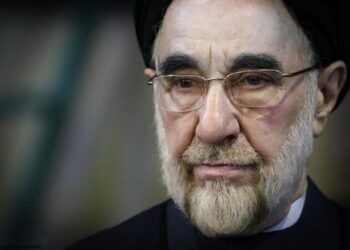the militant group’s leader told the Arabic daily Ash-Sharq Al-Awsat.
Abdul Rahman Haji-Ahmadi, PJAK’s leader who is based in Germany, told the London-based newspaper his group “is ready to lay down its arms and cease military operations against Iran” if allowed to operate freely in Iran.
Some thought this was a surprising offer and a major development. Others saw it as an admission of the group’s weakness. But some suspected Haji-Ahmadi was just trying to twit Iran, given that no group critical of the establishment is allowed to operate freely in Iran. Still others thought Haji-Ahmadi was trying mainly to appease the Baghdad regime by showing that his group was reasonable and willing to talk and was not just a band of armed killers.
Haji-Ahmadi’s comments come about three weeks into the ongoing operations by the Pasdaran against PJAK’s positions along the northwestern Iran-Iraq border. Both sides have sustained casualties, a diplomatic row has erupted between the two countries and hundreds of Kurdish civilians have been displaced.
Haji-Ahmadi also said, “We would like to return to the country [Iran], because we want to continue the fight inside our country, not from [Iraq’s] Kurdistan region.
PJAK – which is an offshoot of the Iraqi Kurdistan Workers’ Party (PKK) – is active in the border regions between Iran and Iran. For the first time, Haji-Ahmadi also admitted that his group is present in Iraq’s Qandil Mountains, an area he claimed “does not belong to any individual or government.”
PJAK is considered a terrorist organization by Iran and has also been designated a Foreign Terrorist Organization by the US State Department. Iran’s PressTV, the regime’s English language television outlet, asserted recently, however, that the US consulate in the Iraqi city of Erbil was supplying PJAK with weapons.
Meanwhile, Kurdish businessmen threatened last week to boycott Iran because of its attacks inside Iraqi Kurdistan. The head of Kurdistan’s Exports and Imports Union (KEIU), Mustafa Abdulrahman, told the Kurdish AKNews agency that Iran would lose $3 billion annually in case of a boycott. (That assumed a 100 percent successful boycott.)
“Iran will suffer colossal damage in the case of a boycott of Iran by Kurdish businessmen, especially since Iran is already under economic sanctions,” Abdul-rahman said.
AKNews also reported that recent Iranian shelling in the Kurdish areas of Iraq has killed three people and injured four. Hassan As-Sunayd, chair of the Iraqi parliament’s Security and Defense Committee, asked Iran to pay reparations to the victims of the shelling. Otherwise, he threatened, Iraq would go to the United Nations Security Council.
The governor general of Iran’s West Azerbaijan province, Vahid Jalalzadeh, breathed fire. “We do not confirm (reports of Iranian troops entering Iraqi territory),” he said, adding, “The operation against the group will continue until all members are killed.”














